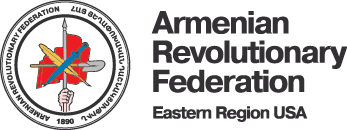Sassounian: Better to Support Armenian Activists than Criticize Azeri, Turkish Lobbying
For years, many critical books and articles have been written about foreign countries and domestic groups for hiring lobbying firms or making campaign contributions to influence government officials.
One such article was published last week by L. Michael Hager in the Foreign Policy Journal titled, “The Best Congress AIPAC Can Buy.” AIPAC is the acronym for the American Israel Public Affairs Committee. The author acknowledges that “there is nothing illegal or morally wrong with lobbying Congress or candidates for office. In fact, it can serve a useful purpose in educating members and candidates about matters subject to legislation. The problem comes when the lobbyists use money to secure access or buy support for proposed bills and resolutions.” After that benign introduction, however, Hager concludes that “for the sake of our democracy, the flow of interest group money that is buying off our elected lawmakers must be stopped.”
Hager states that “nowhere is the influence and power of a political lobby more evident than in the annual Policy Conference of the American Israel Public Affairs Committee (AIPAC)” held on March 22-24 in Washington, D.C.
Conference speakers addressed “more than 15,000 pro-Israel Americans (including 2/3 of the current Members of Congress). Among the speakers were 30 members of the U.S. Congress, 25 of whom received 2016 contributions from pro-Israel PACs and individuals, averaging $36,000 per recipient ($908,000 in total). From each of those speakers, AIPAC gains a public expression of high level support for Israel.”
Hager reported that the AIPAC conference attracted nearly 400 speakers, including “Vice President Joe Biden and Presidential candidates Donald Trump, Hillary Clinton, Ted Cruz and John Kasich.” According to the writer, “AIPAC generated contributions in the amount of $212,927 for Hillary Clinton and $203,850 for Ted Cruz. Marco Rubio received $132,552 and Lindsey Graham $74,200. No surprise that all of those candidates have pledged ‘full support’ for Israel.”
The author considers “The AIPAC-led pro-Israel lobby” as “probably the strongest, best organized and most effective lobby network in Washington, D.C. For the 2015-2016 election cycle, the pro-Israel network has already dispensed $4,255,136 in contributions. The largest single amount ($259,688) went to Senator Charles Schumer of New York.”
Hager explains that “AIPAC itself does not make political contributions and is in fact legally prohibited from doing so. Instead it uses its considerable resources ($3 million annual lobbying budget) to link current and aspiring members of Congress with pro-Israel donors. AIPAC’s projection of invincibility encourages political candidates and officeholders to accept pro-Israel contributions or risk seeing those funds go to their opponents. For example, former Congressman Paul Findley and former Senator Charles Percy lost their seats for failure to adhere to the AIPAC line.”
The author’s criticisms emanate from his concern that “the appearance of conflict of interest erodes citizen trust in government. Given the critical importance of money for reelection campaigns, political contributions such as [the ones] mentioned above have the potential to corrupt or create the appearance of corrupting otherwise honest officials.”
Hager acknowledges that AIPAC is “only one part of a larger picture, dominated by congressional fundraising and lobby contributions,” such as “Defense, pharmaceuticals, the NRA and other lobbies….”
In my view, it is justified to criticize lobbying firms and their paymasters when they violate U.S. laws. However, it is more important to strengthen one’s own lobbying efforts than disparage what others are doing. While it is necessary from an Armenian perspective to monitor closely the lobbying firms hired by Turkey and Azerbaijan, Armenians should focus on what they can do to support their two public affairs organizations in Washington—The Armenian Assembly and Armenian National Committee of America. Despite their limited staff and resources, these Armenian-American groups have been successfully countering the activities of major lobbying firms hired for millions of dollars by Turkey and Azerbaijan.
Fortunately, Armenian-American groups do not need such exorbitant sums to pursue their political goals in Washington because it costs much less to present the truth of their just cause, unlike Turkey and Azerbaijan which have to spend huge amounts of money to deceive the politicians and the public!
Source: Armenian Weekly Mid-West
